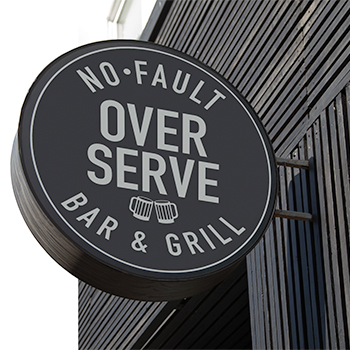
The Maryland Court of Appeals – the highest court in our state – recently reevaluated the state’s archaic “dram shop” liability laws. (A dram shop is a term referring to a bar or other establishment where spirits are sold ‘by the dram’.) The Court blew yet another opportunity to protect the public – and especially our children – from outrageous behavior and potential danger.
20 Drinks Later: Drunk Driver Kills 10-Year-Old Girl
On July 25, in a 4-to-3 decision, the Court ruled in favor of Gaithersburg-based Dogfish Head Alehouse, narrowly upholding a lower court’s ruling that found the bar was not liable for the death of 10-year-old Jazimen Warr of Urbana and significant injuries to her family members – all victims of a drunk driver who had patronized Dogfish prior to the deadly crash. Let’s review the facts:
- The drunk driver had been served, and consumed, in excess of 20 alcoholic drinks at Dogfish prior to crashing into the victims’ car.
- They served the defendant these alcoholic beverages over the course of 6 hours.
- Finally, he became so violent and aggressive that the bar finally asked him to leave.
- Within minutes, he had killed young Jazimen and significantly injured family members.
Although the driver/defendant was convicted criminally, I believe that Dogfish should have been held responsible, as well, for continuing to serve him and contributing to his physical state. The Court of Appeals declined to impose liability on Dogfish “in the absence of any duty owed by the tavern to the Warrs,” but, to me, at that level of intoxication, the duty was implied.
“Dram Shop” Laws Puts Liability In The Right Place
At least 44 states and the District of Columbia have some form of “dram shop” laws. Maryland is one of the few that lacks an explicit “dram shop liability” statute. Such laws hold bar owners partly responsible for the damage done by customers who the bar continued to serve after they were “visibly intoxicated.” Unfortunately, the Maryland Court was disinclined to follow the national trend, and concluded instead that the state legislature is the place to make any changes to the existing law. The practical effect of the Court’s ruling is that:
- An “accident” (this was no accident) occurs when the customer is off the premises, the establishment cannot be held liable when, in his or her intoxicated state, the customer later kills or injures someone.
- The majority did not recognize a duty of the tavern to the Warrs and “adhere to the principle that human beings, drunk or sober, are responsible for their own torts.”
One Lone Court Voice To Protect The Public
The public opinion on drunken driving has changed greatly since the last time the court considered dram shop liability and, as Judge Sally D. Adkins said in the dissent, it is simply “inconsistent with our established duty-of-care jurisprudence.” The bar created a greater risk of harm for the injured family than they would have faced absent the bar’s conduct. Such conduct is “misfeasance” under common law, the judge wrote, and thus it is not necessary for there to be a particular law covering dram shop liability for the bar to be liable for damages.
Judge Adkins noted “an average of 220 people died annually as a result of impaired driving-related crashes on Maryland roads . . .equat[ing] to 18 deaths a month or a death every 40 hours.” Most of us know the alarming statistics of drunken driving crashes causing death and severe injury every day/year. But there was one statistic noted in the dissent that I did not know: up to 50 percent of people driving under the influence had consumed their last drinks at licensed establishments. So, the Court had a real opportunity to do something about a very real problem, and let the opportunity slip away.
Maryland Needs to Change Outdated Laws
It boggles my mind that the majority of Maryland’s Appellate Court judges continue to cling to antiquated laws; Maryland is a progressive state by any other definition. Yet, in 1951, 1981, and 2000, the Court of Appeals and Court of Special Appeals declined to create a dram shop law, and in 2011 and 2012, bills to create such a law failed to gain traction in the General Assembly (four bills introduced in the General Assembly on the subject between 1987 and 2012 never made it out of committee).
How can an establishment NOT be held responsible for an injury if it continues to serve a patron who is clearly “over the limit?” Why shouldn’t a bar or restaurant have a duty to foresee the consequences that could flow from harmful acts performed by a patron in his or her altered state? It is reasonable to conclude that an establishment licensed with the privilege to serve alcohol on its premises owes a duty to the public to keep them safe. By serving the driver excessive amounts of alcohol, Dogfish contributed to his impaired condition, exacerbating the possibility for potential harm. There is nothing to recommend the retention of a right to pander alcohol with impunity.
Maryland Courts need to change so the state can catch up to the rest of the country as it progresses with the changing way of life.
